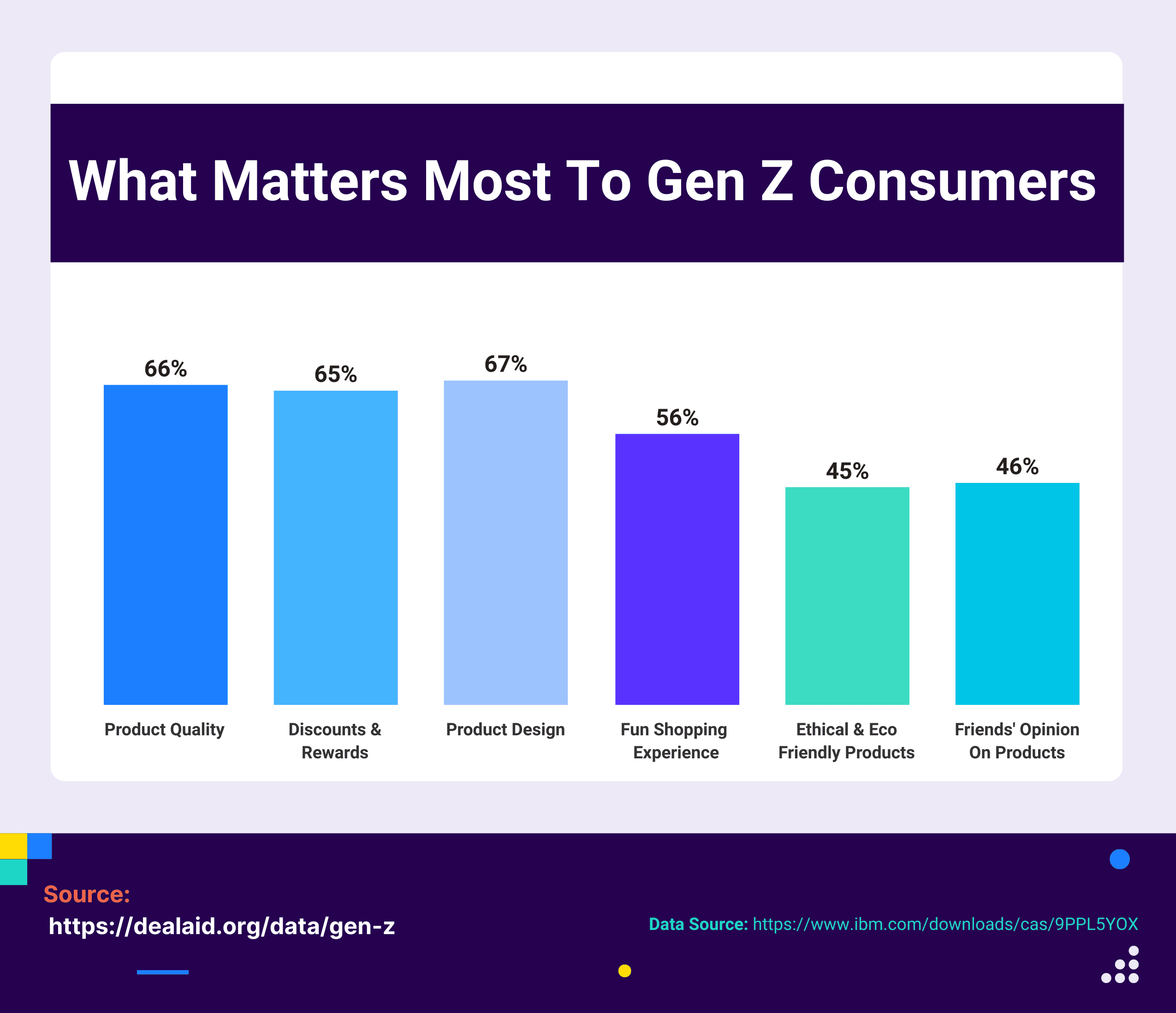Android's Design Update: A Competitive Analysis In The Gen Z Market

Table of Contents
Gen Z's Design Preferences and Expectations
Gen Z's tech expectations are high. Understanding their design preferences is crucial for any operating system aiming for market dominance.
Emphasis on Visual Appeal and Personalization
Gen Z values aesthetically pleasing interfaces above all else. They desire customization options to personalize their digital experience, reflecting their individuality.
- Vibrant colors: Bold and expressive color palettes are highly appealing.
- Unique themes: The ability to completely change the look and feel of their phone is a must-have.
- Customizable widgets: Widgets allow for quick access to information and personalized displays.
- Easy-to-use personalization settings: Complex settings menus are a turn-off; ease of access is key.
Android's Material You design system directly addresses these preferences. Material You allows for dynamic theming, where the system's colors adapt to the user's wallpaper, creating a personalized and visually consistent experience. This is a significant step towards meeting Gen Z's desire for unique and expressive interfaces.
Intuitive User Experience and Seamless Navigation
This generation prioritizes efficiency and ease of use. Clunky interfaces lead to frustration and app abandonment. Speed and simplicity are paramount.
- Simple navigation: Clear and intuitive menus are essential for a positive user experience.
- Quick access to key features: Gen Z values speed and efficiency; features must be easily accessible.
- Minimal steps to complete tasks: A streamlined user experience minimizes frustration and maximizes productivity.
Android has made improvements in interface fluidity and accessibility. The introduction of more intuitive gesture controls and simplified settings menus reflects a commitment to improving user experience for all, especially those who prioritize speed and efficiency. This aligns well with Gen Z's preference for seamless navigation.
Social Media Integration and Sharing Capabilities
Social connectivity is paramount for Gen Z. Seamless social media integration is a critical factor influencing their choice of operating system.
- Easy sharing to various platforms: Quick and easy sharing to all major social media platforms is a must.
- Built-in social features within apps: Integration of social features directly within apps enhances user engagement.
- Seamless integration with messaging apps: Effortless communication is key; fast and reliable integration with messaging apps is crucial.
The latest Android update boasts improved social sharing capabilities, making it easier than ever to share content across various platforms. Compared to iOS, Android offers a more open and flexible approach to app integration, potentially giving it an edge in attracting users who value quick and easy social connectivity.
Competitive Landscape: Android vs. iOS in the Gen Z Market
The competition between Android and iOS is fierce, particularly within the Gen Z market. Several factors contribute to this competition.
App Ecosystem Comparison
A rich app ecosystem is crucial for attracting and retaining users. Gen Z values having access to a wide variety of apps, including unique and niche applications.
- Availability of popular Gen Z apps: The presence of apps favored by Gen Z, like TikTok, Instagram, and Snapchat, is essential.
- Unique and niche apps: Access to smaller, independent apps caters to individual interests and preferences.
- Ease of app discovery and download: A simple and intuitive app store is key for finding and installing desired applications.
Both Android and iOS boast extensive app libraries. However, the open nature of the Android ecosystem often leads to a wider variety of apps, including those catering to niche interests, which might appeal more to a diverse generation like Gen Z.
Privacy and Security Features
Gen Z is increasingly concerned about data privacy, making it a crucial factor in their platform choice.
- Built-in privacy controls: Robust privacy controls provide users with greater control over their data.
- Data encryption: Encryption protects user data from unauthorized access.
- Transparency around data collection: Clear and concise information regarding data collection practices builds trust.
Android has been actively improving its privacy features. Features like enhanced permission controls and improved data encryption are designed to address Gen Z's privacy concerns. However, a direct comparison with iOS's privacy features requires a more in-depth analysis to determine which OS offers a more compelling privacy proposition for Gen Z.
Device Accessibility and Pricing
Android's diverse range of devices caters to various budgets. This accessibility is a significant advantage in the Gen Z market.
- Affordable options: A wide range of budget-friendly devices makes Android accessible to a larger demographic.
- Mid-range devices: Mid-range devices offer a balance between price and performance.
- Flagship models: High-end devices compete directly with premium iOS devices.
- Diverse manufacturers: A variety of manufacturers ensures a diverse range of options and designs.
The affordability of Android devices compared to iPhones makes it a more accessible choice for Gen Z. This accessibility, coupled with a wide range of features and specifications, is a compelling factor in attracting this cost-conscious demographic.
Analysis of Android's Design Update Impact
Measuring the impact of Android's design update requires a close examination of various metrics.
User Engagement Metrics
Tracking key metrics reveals the effectiveness of the design update in improving user engagement.
- App usage time: Increased app usage time suggests improved user satisfaction.
- App downloads: Higher download rates indicate increased adoption of Android.
- User retention rates: Higher retention rates demonstrate the ability of the update to retain users.
- Customer satisfaction surveys: Direct feedback provides valuable insight into user perception.
While concrete data on the impact of the Android design update on Gen Z is still emerging, increased app usage time and positive user feedback from surveys would suggest a successful update.
Market Share and Brand Perception
Analyzing market share changes provides a broader picture of the update's success.
- Changes in Android's market share: Increases in market share suggest a positive impact on user adoption.
- Improvements in brand perception among Gen Z: Positive brand perception translates to increased loyalty and advocacy.
Whether the update has significantly impacted Android’s standing within the Gen Z market remains to be seen. Long-term monitoring of market share and brand perception through social media sentiment analysis and other market research techniques will be crucial.
Conclusion
Android's recent design updates represent a significant effort to cater to Gen Z's preferences. By focusing on visual appeal, intuitive navigation, and strong social integration, Android aims to compete effectively with iOS. However, continued analysis of user engagement metrics and the evolving needs of Gen Z will be crucial for long-term success. Further research into the ongoing impact of Android's design update on Gen Z is necessary to fully assess its effectiveness. Understanding Android's design update and Gen Z preferences is key to staying ahead in the mobile OS market. Stay tuned for further updates and analyses on how Android continues to evolve to meet the needs of Gen Z.

Featured Posts
-
 Report Uk To Restrict Visa Applications For Certain Nationalities
May 09, 2025
Report Uk To Restrict Visa Applications For Certain Nationalities
May 09, 2025 -
 New Uk Immigration Policy Potential Barriers For International Students Seeking Asylum
May 09, 2025
New Uk Immigration Policy Potential Barriers For International Students Seeking Asylum
May 09, 2025 -
 Iron Ore Price Plunge Chinas Steel Output Restrictions Explained
May 09, 2025
Iron Ore Price Plunge Chinas Steel Output Restrictions Explained
May 09, 2025 -
 Makron I Tusk Podpisanie Vazhnogo Dogovora Mezhdu Frantsiey I Polshey Eksklyuziv Ot Unian
May 09, 2025
Makron I Tusk Podpisanie Vazhnogo Dogovora Mezhdu Frantsiey I Polshey Eksklyuziv Ot Unian
May 09, 2025 -
 How Luis Enrique Reshaped Paris Saint Germain To Claim Ligue 1
May 09, 2025
How Luis Enrique Reshaped Paris Saint Germain To Claim Ligue 1
May 09, 2025
